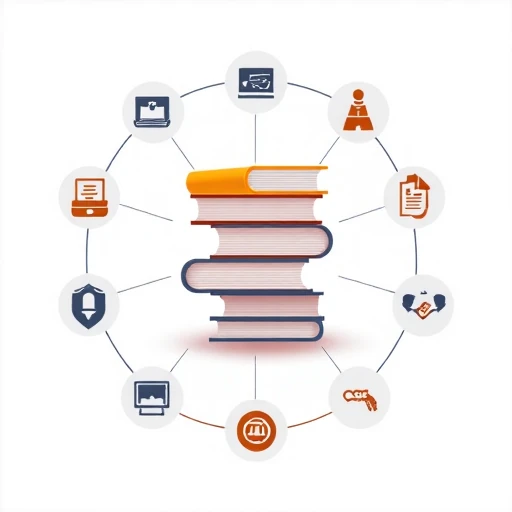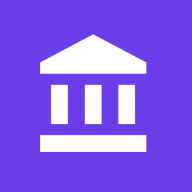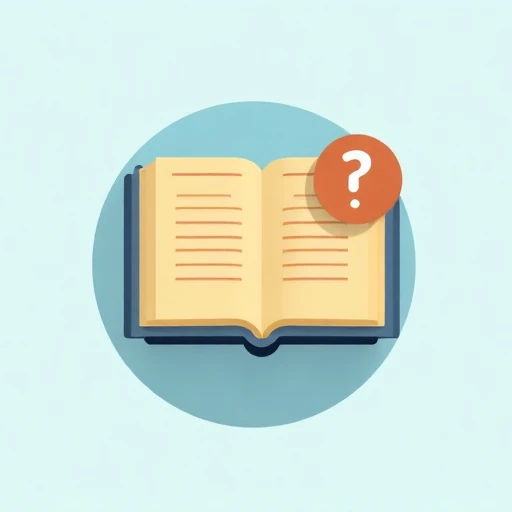Ace Your Librarian Interview: Top Questions & Expert Answers for 2025


Dreaming of a career as a librarian in the US, surrounded by books and contributing to knowledge access? Librarian roles are rewarding but competitive. And the interview is your crucial final step to landing that dream library job.
Your interview performance is key to standing out and securing the position. Being well-prepared and confident will showcase your skills, abilities, and passion for library service to the interviewers.
Don't worry! Library Job Hub is here to help with this Ultimate Guide to Acing Your 2024 Librarian Interview. We'll break down the most common interview questions and provide expert answer strategies and frameworks to help you confidently navigate any question and Ace Your Librarian Interview!
Ready to get started? Let's dive in!
1. Questions About You
Interviewers ask these questions to quickly understand your background, motivations, career goals, and personality, assessing if you're a good fit for the library culture and job requirements. When answering, be genuine, confident, highlight key points, and always connect back to the library position you're applying for.
-
"Tell me about yourself."
- What they're asking: This isn't your life story! They want a concise overview of your highlights relevant to the job.
- Answering Strategy: Use the STAR method (Situation, Task, Action, Result) framework to highlight relevant library-related experiences and skills. Be concise and focused, aiming for a 2-3 minute answer.
- Example Answer Framework: "[Brief Background (e.g., degree, major, years of experience)] + [Relevant Skills/Experience (e.g., information retrieval, user services, collection management, with specific examples)] + [Passion for Library Work/Motivation (e.g., love of reading, community service, knowledge access)] + [Expectations for the Position (e.g., eager to learn and grow in this role, contribute to the library's mission)].
-
"Why do you want to be a librarian?"
- What they're asking: To understand your internal drive to work in libraries and your understanding of the value of libraries.
- Answering Strategy: Sincerely express your passion for library work, connecting it to personal experiences or values, emphasizing your enthusiasm for serving the community/users. Avoid generic statements, and use specific examples or details to resonate with the interviewer.
- Example Answer Framework: "[Love for Reading/Knowledge (e.g., lifelong passion for books, enjoying time in libraries)] + [Recognition of Library Value (e.g., libraries are knowledge hubs, community centers)] + [Desire to Serve Others (e.g., helping users find information, improve information literacy)] + [Alignment of Personal Skills with Library Work (e.g., patient, detail-oriented, strong communication skills, suitable for library work)].
-
"What are your career goals?"
- What they're asking: To understand your career development plans and assess your long-term potential and alignment with the library's direction.
- Answering Strategy: Show your career progression plans, express your intention for long-term growth in the library field, and connect your goals with the specific position and the library's mission. Make your goals specific, achievable, and demonstrate your eagerness to learn and grow.
- Example Answer Framework: "[Short-term Goals (related to the position, e.g., quickly learn the role, master key skills, contribute to the department)] + [Long-term Goals (growth in the library field, e.g., become an expert in a specific area, take on leadership roles)] + [How to Contribute to the Library (e.g., use skills to enhance services/programs, promote library development)].
-
(Optional Question Example) "What are your strengths and weaknesses?"
- Strengths Answering Strategy: Choose 2-3 strengths relevant to library work, such as: communication skills, organizational skills, learning agility, teamwork, technical skills. Back up your strengths with specific examples.
- Weaknesses Answering Strategy: Choose a "minor weakness" that doesn't impact core job functions and emphasize that you're actively working to improve it. Avoid mentioning fatal flaws like lack of responsibility or poor communication. Frame weaknesses as "areas for development" to show a positive learning attitude. Example: "I can sometimes be overly focused on details, which can slow me down initially, but I'm learning to better balance detail and efficiency."
2. Questions About Skills and Experience

These questions aim to deeply assess your professional skills, practical experience, and problem-solving abilities, determining if you possess the core competencies for the role. When answering, use specific examples to showcase your abilities and achievements, convincing the interviewer that you "can do the job".
-
"Describe a time you successfully helped a patron with a complex information need."
- What they're asking: To assess your information retrieval skills, communication skills, and problem-solving abilities.
- Answering Strategy: Use the STAR method, detailing the Situation, Task, Action, and Result, highlighting your professionalism and user-centered approach.
- Example Answer Framework: "[Situation (Patron had a complex information need, e.g., unclear research topic, lacked search strategies)] + [Task (Your responsibility was to help the patron find needed information)] + [Action (Steps you took, e.g., in-depth communication with the patron to clarify needs; analyzed research topic to identify keywords; demonstrated database search techniques; recommended relevant resources)] + [Result (Patron successfully found information, research progressed; Patron expressed gratitude for your professional service)].
-
"What experience do you have with library technologies, such as library management systems, databases, digital resources, etc.?"
- What they're asking: To understand your proficiency in library technologies and your ability to adapt to a digital library environment.
- Answering Strategy: List technologies and systems you're familiar with and provide examples of your application skills. Even if experience is limited, express eagerness to learn and adaptability, showing your enthusiasm for new technologies.
- Example Answer Framework: "[List of Familiar Technologies/Systems (e.g., Alma, Sierra, OCLC WorldShare, JSTOR, EBSCOhost, LibGuides, social media platforms, etc.)] + [Application Examples (specific projects or work, e.g., used [LMS] for collection cataloging, utilized [databases] to support user research, created subject guides using [LibGuides])] + [Enthusiasm for Continuously Learning New Technologies (e.g., follow library technology trends, willing to learn and master new tools)].
-
"How do you handle multitasking and time management?"
- What they're asking: Library work often requires handling multiple tasks simultaneously, assessing your time management skills, prioritization skills, and ability to work under pressure.
- Answering Strategy: Share your time management techniques and methods, such as prioritization, using tools, and handling unexpected situations. Use specific examples to show how you effectively complete multiple tasks under pressure.
- Example Answer Framework: "[Time Management Methods (e.g., using To-Do Lists, Pomodoro Technique, Eisenhower Matrix for prioritization)] + [Specific Example (describe a time you needed to complete multiple tasks in a short time, how you used time management skills to complete them efficiently and with quality)] + [Ability to Handle Stress and Change (e.g., staying calm, flexibly adjusting plans, proactively seeking help)].
-
(Optional Question Example) "What role do you typically play in a team?"
- Answering Strategy: Based on your personality and work habits, choose a positive role, such as: leader, coordinator, supporter, innovator. Use specific examples to show how you contribute to teams and achieve positive outcomes. Emphasize your teamwork and contributions.
3. Situational and Behavioral Questions

These questions aim to assess your behavioral patterns, values, and responses in specific situations, predicting your potential behavior in real work scenarios. When answering, demonstrate your professionalism, communication skills, conflict resolution abilities, and adaptability.
-
"Describe a time you worked with a colleague or patron who had a different opinion than you. How did you resolve the conflict?"
- What they're asking: To assess your communication, negotiation, and conflict resolution skills, and your interpersonal skills.
- Answering Strategy: Use the STAR method, focusing on your communication, negotiation, and conflict resolution skills. Emphasize resolving issues positively and professionally, and maintaining good relationships. Avoid blaming others, and focus on your actions and positive outcomes.
- Example Answer Framework: "[Situation (Describe the context of the disagreement with a colleague/patron, e.g., project plan disagreement, patron dissatisfaction with library service)] + [Task (Your goal was to resolve the disagreement, reach consensus, or mediate the conflict)] + [Action (Communication and resolution strategies you used, e.g., actively listening to the other person's viewpoint, understanding their perspective; clearly expressing your own ideas, finding common ground; proposing compromises or alternatives; seeking third-party assistance)] + [Result (Conflict was effectively resolved, consensus reached, team collaboration or patron relationship maintained)].
-
"How would you handle a patron who is upset about a library policy?"
- What they're asking: To assess your communication skills, emotional management skills, user service mindset, and understanding and execution of library policies.
- Answering Strategy: Demonstrate your empathy, patience, and professionalism, emphasizing listening, understanding, and providing solutions while upholding the authority of library policies.
- Example Answer Framework: "[Listen and Understand the Patron's Emotions (e.g., remain calm and polite, actively listen to the patron's complaints, show empathy)] + [Explain the Rationale of the Policy (e.g., patiently explain the purpose and basis of the policy, explain its rationale, cite policy if possible)] + [Offer Possible Solutions or Alternatives (e.g., if policy allows, offer flexible handling; if policy is unchangeable, offer alternative services or resources)] + [Maintain Professionalism and Politeness (always maintain a professional image, provide assistance with a positive attitude)].
-
"If you were to design a new library program for teenagers, what would it be and why?"
- What they're asking: To assess your innovative thinking, understanding of the target demographic, and program planning skills.
- Answering Strategy: Show your innovative thinking, connecting to the library's mission and community needs. Propose a program that is engaging, practical, and feasible. Reflect your understanding of teenagers and your passion for library services.
- Example Answer Framework: "[Program Name and Brief Description (e.g., Teen Coding Workshop, combining popular coding technologies to develop teen tech literacy)] + [Program Goals and Target Audience (e.g., attract teens to the library, improve teen digital skills, foster teen innovation)] + [Program Features and Innovation (e.g., interactive teaching methods, gamification elements, inviting industry experts as speakers)] + [Program's Alignment with Library Mission (e.g., aligns with the library's mission to enhance community information literacy, promote teen development)].
-
(Optional Question Example) "How do you work under pressure?"
- Answering Strategy: Acknowledge that pressure is inevitable in work, but emphasize your ability to handle pressure, such as: staying calm, organizing effectively, seeking support, and maintaining a positive mindset. Use specific examples to illustrate how you maintain efficiency and high-quality work under pressure.
4. Questions About Libraries and the Profession

These questions aim to assess your understanding of the library profession, industry trends, and professional knowledge, as well as your commitment and passion for library work. When answering, demonstrate your professionalism, forward-thinking approach, and passion for the library profession.
-
"What do you think are the biggest challenges facing libraries today?"
- What they're asking: To assess your awareness and thinking about library industry trends.
- Answering Strategy: Show your understanding of library industry challenges, such as digital transformation, information literacy, funding challenges, changing social roles, etc. Express your understanding of the challenges and your proactive approach to addressing them, suggesting potential solutions.
- Example Answer Framework: "[List 1-2 Challenges (e.g., digital divide - some people lack digital skills to use digital resources effectively; information overload - how to help users find reliable information in vast amounts of data)] + [Analyze the Impact of Challenges (e.g., digital divide exacerbates social inequality; information overload leads to information anxiety)] + [Suggest Possible Solutions (e.g., strengthen digital literacy education and training; enhance information navigation and evaluation services; innovate library service models, e.g., mobile libraries, community outreach services)].
-
"What do you know about our library? Why do you want to work here?"
- What they're asking: To assess if you've done your homework on the library and your motivation and sincerity in applying for the position.
- Answering Strategy: Do your research beforehand! Through the library's website, social media, news reports, etc., understand the library's background, mission, services, special programs, etc. Connect your personal strengths and career goals, explaining your fit with the library and the value you can bring.
- Example Answer Framework: "[Knowledge of the Library (e.g., Your library is a leader in [specific area]; your library's [specific service/program] is popular in the community; I know your library values [specific value], like innovation, community engagement)] + [Alignment with Personal Values/Career Goals (e.g., I'm very interested in [specific area]; my [skills] match your library's [specific service/program]; I agree with your library's [value] and want to work in such an environment)] + [Your Expected Contributions to the Library (e.g., I hope to use my [skills] to contribute to your library's [service/program], grow with the library)].
-
"How do you see the role of libraries in the community?"
- What they're asking: To assess your understanding of the social value of libraries and your agreement with the library's mission.
- Answering Strategy: Demonstrate your deep understanding of the social value of libraries, such as information centers, learning centers, community centers, cultural centers, etc. Emphasize the library's role in promoting knowledge access, community development, and social equity, and connect it with your vision for the future of libraries.
- Example Answer Framework: "[Multiple Roles of Libraries (e.g., Libraries are more than just book repositories; they are information resource centers, lifelong learning spaces, community event venues, cultural exchange platforms)] + [Library Contributions to the Community (e.g., providing free and equal access to information, improving citizen information literacy, promoting community cultural development, supporting underserved populations)] + [Vision for the Future Development of Libraries (e.g., libraries should actively embrace digital technology, innovate service models, strengthen community partnerships, and continue to play an important role in the community)].
-
(Optional Question Example) "What do you think is the future of libraries?"
- Answering Strategy: Show your insights and forward-thinking perspective on the future of libraries, such as: digital transformation, service innovation, community engagement, diversified development, etc. Express your confidence in the future of libraries and your willingness to contribute to their development.
Bonus Tips to Impress in Your US Librarian Interview
- Do Your Homework: Thoroughly research the specific library's background, mission, services, culture, and recent news.
- Dress Professionally: Choose appropriate attire based on the library type and culture, showing professionalism and respect for the interview. Business casual is generally safe, but observe the library's website or social media for clues about their dress code.
- Be Punctual: Arrive 10-15 minutes early to allow time to settle in and mentally prepare. US culture values punctuality.
- Send a Thank-You Note: Within 24 hours of the interview, send a thank-you email to the interviewer(s), reiterating your interest and enthusiasm for the position and re-emphasizing your key strengths. This is a standard professional courtesy in the US.
- Prepare Questions to Ask: At the end of the interview, interviewers usually ask if you have any questions. Prepare 2-3 thoughtful questions about the team, projects, library direction, etc. to show your engagement and curiosity.
Conclusion
A librarian interview in the US assesses your knowledge, skills, experience, and professional qualities comprehensively. Thorough preparation, confident communication, and demonstrating your passion and commitment to the library profession will help you stand out and land your dream job!
Remember: Library Job Hub is your best partner on your career journey! We provide the latest US library job postings and abundant career resources to help you easily find your ideal library position!
Good luck with your interview!


